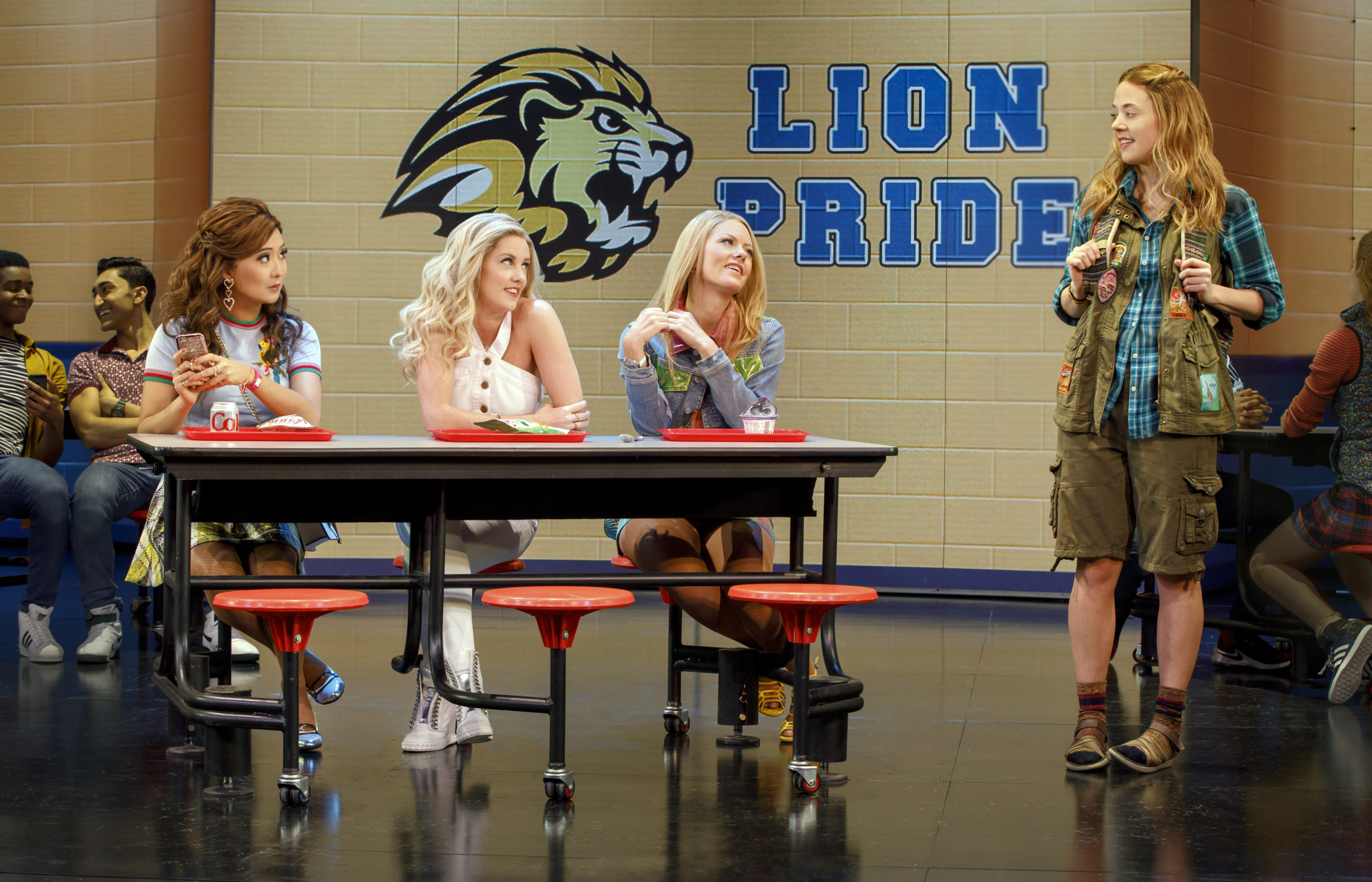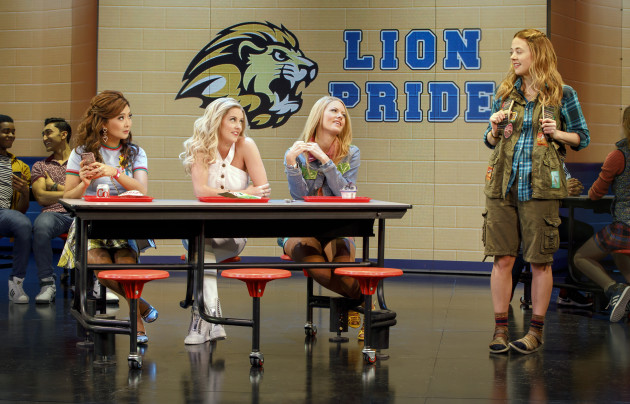
How Feminist is the “Mean Girls” Musical, Really?

“Mean Girls” playing at the August Wilson Theater.
“Mean Girls,” the shiny new musical about high school cliques written by Tina Fey and based on her movie of the same name, concludes with some upbeat messages for teenaged girls: Don’t pretend to be less smart than you are to attract boys. Don’t try to be someone you’re not in order to fit in: be yourself. And don’t forget to be, as one anthem is titled, “Fearless.”
Wait a minute! Is this 2018? Why do girls still need to be told these basics? And this is supposedly an updated version of the 2004 movie, not a throwback. There are plenty of references to social media and a new nugget of advice: Don’t send nude photos of yourself over the internet, because boys will share them, though wouldn’t it be nice if they didn’t.
This apparent lack of progress can make a seasoned feminist’s heart sink. Has anything really changed over the last half-century?
The show, with music by Jeff Richmond (Fey’s husband) and lyrics by Nell Benjamin (who co-wrote music and lyrics for the similarly upbeat “Legally Blonde”), is hardly anti-feminist, and it could be seen only as a good-natured and often funny look at an awkward period in everyone’s life. But it sends mixed messages. The most envied girls at the high school wear super-short skirts, super-high heels and manes of glossy hair. These are the title’s mean girls, and who wouldn’t want to be like them? The musical is supposedly saying that no one should—but that is not the aesthetic or emotional message.



